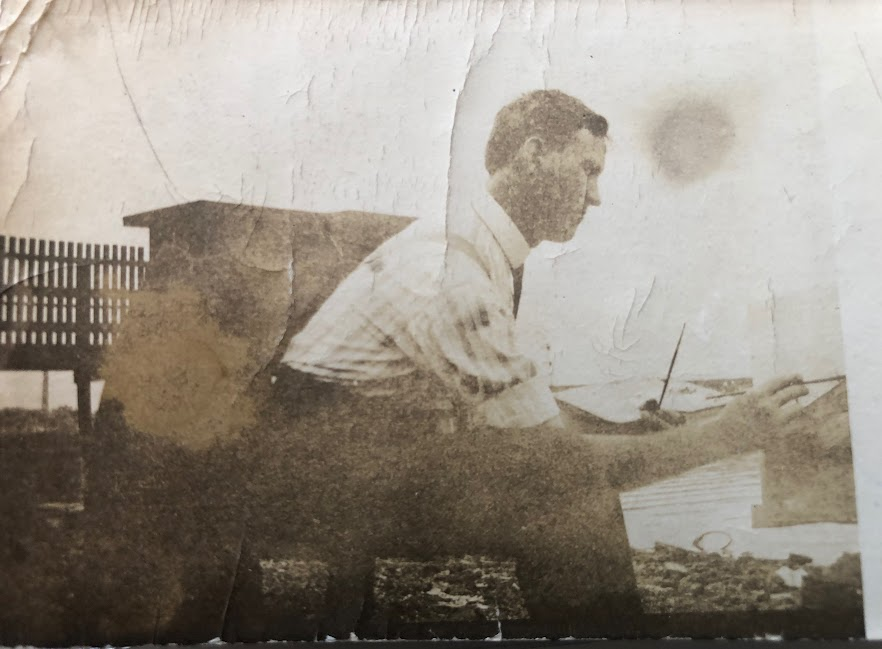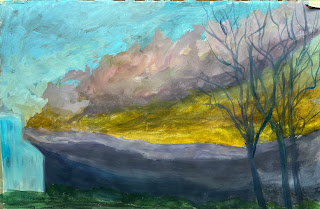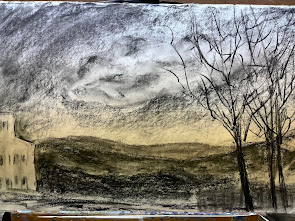Beaver Pond Reflections - Crawford Maine
Acrylic 12" x 16"
Below left was the painting before final adjustments for color and composition. Subtle differences in the height of the background trees. I developed the trees on the island and the shape of the island a bit more and, lastly, added some detail and color contrast to the pond, reflections, and foreground.
I particularly enjoyed painting the foreground. When exploring the Maine streams and woods in the summer or fall, you will often see trees and driftwood deposited by the spring runoff high among trees or high up on river banks. That was the inspiration for the tree in the lower right foreground. A small thing, an incidental accident, almost unconscious but as soon as I made the first brushstroke - there it was.
The other challenge I run into when painting is to find the proper balance of detail and impression. I prefer letting the imagination fill in detail whenever possible.
While reading a book of Rusty Heurlin's with his notes in the margins - he had underlined and noted the importance of simplification in his work. "Simplify, Simplify, Simplify.... Put in only what is necessary in a picture and no more."
Easier said than done but the experimentation is fun and remember - there is almost nothing that can't be undone!















